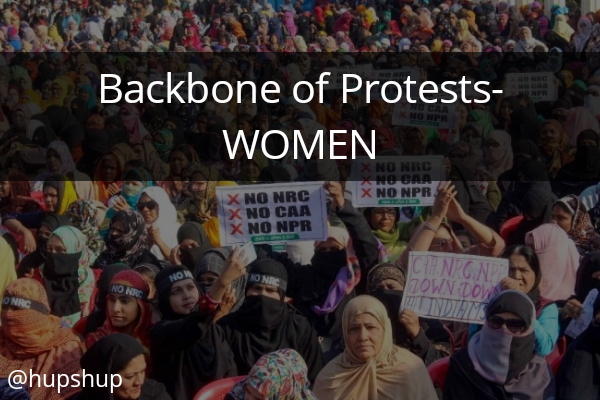The famous American journalist Gloria Steinem said, “We’ve begun to raise daughters more like sons… but few have the courage to raise our sons more like our daughters.”
What is the meaning of ‘being raised like a son’ or being ‘raised like a daughter’?
This question forms the grassroot of what we term as “gender identity” or “gender roles” to be specific. A gender role is basically a social role encompassing a range of behaviors and attitudes that are generally considered acceptable, appropriate, or desirable for people based on their biological or perceived sex. These roles are mainly centered on the conceptions of femininity and masculinity and define how we’re expected to act, speak, dress, groom, and conduct ourselves based upon our assigned sex. For example, girls and women are generally expected to dress in typically feminine ways and be polite, accommodating, and nurturing. Men, however, are generally expected to be strong, aggressive, and bold. The focus of their upbringing lies in the acknowledgement of their ability to be assertive and tough, while women are raised to be soft spoken and provide support to the family and society with their contributions in the household and workspaces.
Every society, ethnic group, and culture has gender role expectations, which describe the manifesto of behavior for each individual, but they can vary from group to group, and also change in the same group several times. Socialists and researchers often suggest, that the pillars of these roles are based on toxic masculinity and the patriarchal form of society.
Geert Hofstede, a Dutch researcher and social psychologist who dedicated himself to the study of culture, in his book ‘Feminine and Masculine Culture Dimensions’, stated, “Masculine cultures expect men to be assertive, ambitious and competitive, to strive for material success, and to respect whatever is big, strong, and fast. Masculine cultures expect women to serve and care for the non-material quality of life, for children and for the weak. Feminine cultures, on the other hand, define relatively overlapping social roles for the sexes, in which, in particular, men need not be ambitious or competitive but may go for a different quality of life than material success; men may respect whatever is small, weak, and slow”.
In feminine cultures, modesty and relationships are important characteristics. This differs from in masculine cultures, where self-enhancement leads to self-esteem. Masculine cultures are individualistic, and feminine cultures are more collective because of the significance of personal relationships. The dominant values in a masculine society are achievement and success; the dominant values in a feminine society are caring for others and quality of life.
However, sociologists also suggest that this prescription of role division originated from the biological differences between the anatomy of male and female human bodies. The socio-biology view argues that men’s fitness was increased by being aggressive, allowing them to compete with other men for access to females, as well as by being sexually promiscuous and trying to father as many children as possible. Women were benefited by bonding with infants and caring for children. Socio-biologists argue that these roles are evolutionary and led to the establishment of traditional gender roles with women in the domestic sphere and men dominant in every other area.
While various socializing agents—parents, teachers, peers, movies, television, music, books, and religion—teach and reinforce gender roles throughout the lifespan, parents probably exert the greatest influence, especially on their very young offspring. As mentioned previously, sociologists know that adults perceive and treat female and male infants differently. Parents probably do this in response to having been recipients of gender expectations as young children themselves. Traditionally, fathers teach boys how to fix and build things; mothers teach girls how to cook, sew, and keep house. Children then receive parental approval when they conform to gender expectations and adopt culturally accepted and conventional roles. All of this is reinforced by additional socializing agents, and learning gender roles always occurs within a social context, the values of the parents and society being passed along to the children of successive generations.
These sorts of stereotypes can prove harmful; they can stifle individual expression and creativity, as well as hinder personal and professional growth. The weight of scientific evidence demonstrates that children learn gender stereotypes from adults.
The American author Bell Hooks wrote in her book All about Love: New visions,
“The wounded child inside many males is a boy who, when he first spoke his truths, was silenced by paternal sadism, by a patriarchal world that did not want him to claim his true feelings. The wounded child inside many females is a girl who was taught from early childhood that she must become something other than herself, deny her true feelings, in order to attract and please others. When men and women punish each other for truth telling, we reinforce the notion that lies are better. To be loving we willingly hear the other’s truth, and most important, we affirm the value of truth telling. Lies may make people feel better, but they do not help them to know love.”
This statement clearly highlights the process of how the gender roles and specifications are instilled among us through generations.
Historically, the origin of setting of specific gender roles comes from the settlement of humankind from hunters and gatherers to agrarian settlements and the differences in the roles of men and women in the initial phase of it. Men in societies characterized by plough agriculture tended to specialize in agricultural work outside the home, while women specialized in activities within the home. In turn, this division of labour generated a norm that the natural place for women is in the home. This belief tends to persist even if the economy moved out of agriculture, affecting the participation of women in activities performed outside the home, including market employment, entrepreneurship, and politics.
These practices later on led on to the formation of what we call gender stereotype. Gender stereotypes are simplistic generalizations about the gender attributes, differences, and roles of individuals and/or groups.
There are four basic kinds of gender stereotypes:
1) Personality traits — For example, women are often expected to be accommodating and emotional, while men are usually expected to be self-confident and aggressive.
2) Domestic behavior — For example, some people expect that women will take care of the children, cook, and clean the home, while men take care of finances, work on the car, and do the home repairs.
3) Occupations — Some people are quick to assume that teachers and nurses are women, and that pilots, doctors, and engineers are men.
4) Physical appearance — For example, women are expected to be thin and graceful, while men are expected to be tall and muscular. Men and women are also expected to dress and groom in ways that are stereotypical to their gender (men wearing pants and short hairstyles, women wearing dresses and make-up).
Extreme gender stereotypes are harmful because they don’t allow people to fully express themselves and their emotions. For example, it creates an image among the young male children that it is harmful for them to feel that they’re not allowed to cry or express sensitive emotion similarly, the young female children create an impression that it’s harmful for them to feel that they’re not allowed to be independent, smart or assertive.
Extreme gender stereotypes have also been responsible for the sufferings of the people who represent themselves as the third gender apart from male and female, popularly named as trans or LGBTQIA+ community. Prejudices, negative stereotypes and discrimination are deeply embedded in our value system and patterns of behavior. Even now, for many public officials and opinion-makers the expression of homophobic prejudice remains both legitimate and respectable – in a manner that would be unacceptable for any other minority, and although we have evidence of existence and acceptance of the third within almost all ancient civilizations. Additionally, people who are third gender or what we would now think of as intersex have been recorded in almost all cultures across human history, but the mainstream idea of gender being a binary concept has always managed to create hindrance in the recognition of an individual identity over gender and sexual orientation.
Expectations and unacceptance have led on to suppress people for generations but now people have started to speak for what is not right. Movements that of feminism and Pride have brought attention to the atrocities and general unfair means towards people. In the same time people have also realised how unfair and toxic is hyper masculinity in general suppressing young children and keeping them from the recognition of their own identity as a human being. Many popular leaders have now started to motivate parents to initiate a more inclusive environment in college and to encourage children with their decisions from their early growth years and to inculcate a habit of educating them about things instead of imposing our own decisions on them. Parents also need to realise that what seems foreign to them is not necessarily wrong and that they need to teach children to be confident to be ready for the later years of their life.
The beginning of a child’s education starts from home, and it is high time parents realise that it is more important that they become a safe space for their children than a portrait of idealism for the society.





